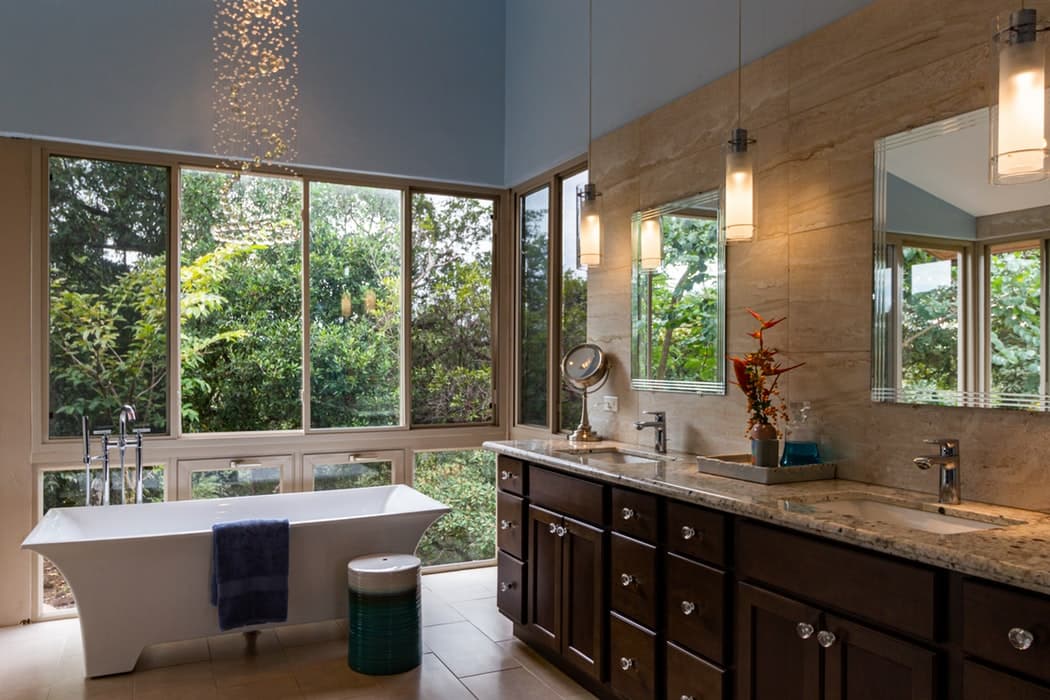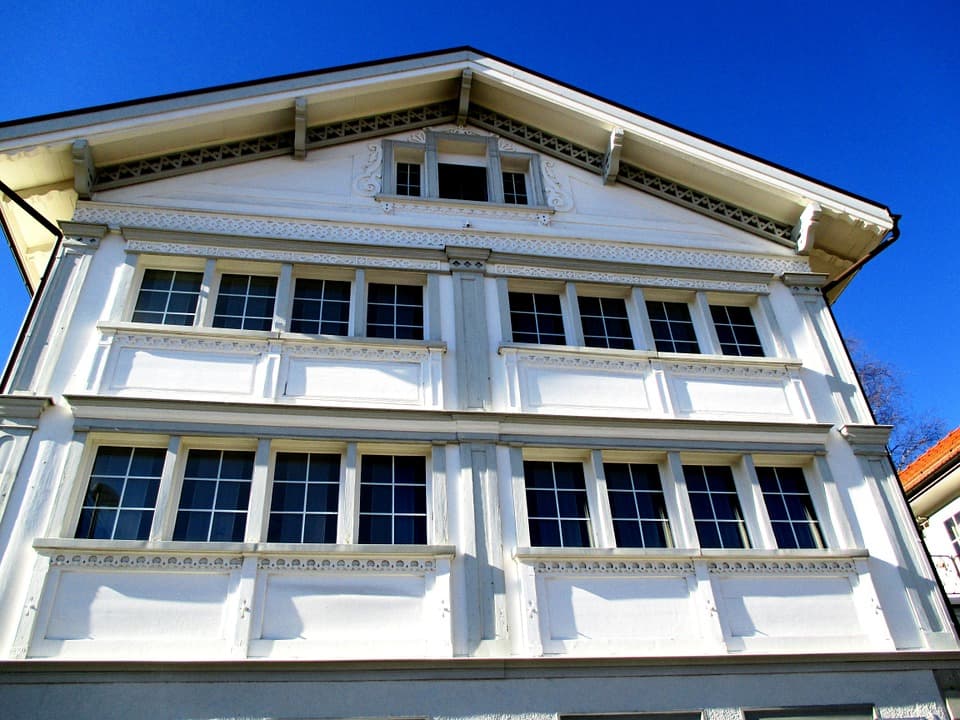The Ultimate Smart Technology Guide for Rental Apartments
By Editorial Team
Updated on October 11, 2024

Smart technology isn't just changing the way we live at home and function at work - it's revolutionizing the rental property market. For investors and landlords, integrating smart devices into rental apartments isn't just about attracting tech-savvy tenants; it's about adding value, increasing security, and improving operational efficiency.
The global smart home market is expected to grow significantly, reaching $313.95 billion by 2027, with a compound annual growth rate (CAGR) of 25.3% from 2022 to 2027. This rapid expansion reflects increasing consumer demand for smart technology in homes, including rental properties. Offering convenience and modern amenities sets a property apart in a competitive market, making smart technology a sound investment in more ways than one.
Investors and landlords should note that a growing number of renters expect smart home features. Self-guided tours, facilitated by smart locks, have surged in popularity, with a 63% increase in interest; renters show a strong preference for smart amenities like smart thermostats, locks, and remote-controlled lighting.
Let’s take a look at how various smart building technologies can transform rental properties, adding appeal and profitability.
1- Smart Locks for Enhanced Security and Operational Efficiency

Keys? So last century. With smart locks, you can lock and unlock your door remotely, hand out virtual keys, and track who’s entering and leaving. All that, with just a tap or a voice command.
Smart locks are a valuable tool for landlords, providing enhanced security, minimizing key management issues, and allowing for remote access control. By offering virtual keys via mobile access control and detailed access logs, landlords can increase security measures and streamline tenant turnover without the hassle of physical keys.
2- Smart Lighting for Operational Savings and Property Value
Smart lighting systems not only improve the aesthetics of a rental property, but also reduce operational costs for landlords. By implementing programmable lights, property owners can appeal to eco-conscious tenants while also lowering energy expenses and increasing the property's market value.
Smart thermostats and lighting can reduce annual utility costs by up to 30%, making these systems attractive for property owners looking to lower operational expenses while appealing to eco-conscious renters. By integrating smart leak sensors, landlords can save up to 70-90% on water damage repairs - significant when you consider the average cost of repairing a multi-unit leak can reach $12,000.
3- Climate Control

Thermostats. The unsung hero of property efficiency. For landlords and investors, smart thermostats offer up a level of customization that not only enhances tenant comfort but also optimizes energy use across your rental properties. Whether it's automatically lowering the heat when the unit is unoccupied (because, let’s face it, that’s both eco-conscious and cost-effective) or ensuring a comfortable temperature upon arrival, these devices work hard to make your property more appealing to tenants, all while reducing operational costs.
And here’s the best part: these thermostats really are smart. They learn from tenant behaviours and adjust accordingly, making them a low-maintenance way to boost energy efficiency - just like a well-behaved investment that only gets better over time.
4- Cameras and Sensors to Protect Your Space
Whether you’re a seasoned investor or a hands-on landlord, smart security is essential. With cameras, motion sensors, and even video doorbells, it's like having a virtual security team monitoring your property 24/7. Most systems instantly alert you if something’s amiss, so you can quickly address any issues from wherever you are. Tenant reported a package theft? Check the footage. Notice suspicious activity? Take action right away.
Darren Robertson of Northern Virginia Home Pro says, “For landlords, wireless smart security systems are a game-changer - they're easy to install without the need for invasive wiring, reducing setup time and property disruption. Plus, they offer up a scalable solution that can grow with your property portfolio, making it simpler to upgrade components as technology advances.”
5- Smart Plugs for Efficient Energy Management

On the surface, smart plugs don’t sound like the most thrilling tech, but they can seriously upgrade your rental property game. Smart plugs offer up an easy way for landlords to enhance energy efficiency in rental units. By automating devices and reducing unnecessary power usage, property owners can promote sustainable living practices while also lowering energy costs, appealing to both environmentally conscious tenants and budget-focused investors.
6- Smart Technology for Enhanced Tenant Satisfaction
Transforming rental properties into smart-enabled units can significantly enhance tenant satisfaction. With integrated entertainment systems, landlords can provide a modern living experience that attracts tech-savvy tenants and boosts the property's appeal in a highly competitive (and high-tech-loving) market. Smart speakers like Google Nest and Amazon Echo don’t just play music - they answer questions, control devices, and act as the glue that keeps the smart home together, with all aspects working in harmony for a seamless tenant experience.
7- Cleaning: Let the Robots Take Over

Robot vacuums and other automated cleaning solutions can greatly benefit property owners by reducing the time and effort spent on routine cleaning tasks between tenants. These devices maintain the cleanliness of common areas and individual units, enhancing the property's overall upkeep; it’s a step further than some of the other options, but definitely worth considering, especially as it’s the way everything is likely to go in the very near future!
8- Smart Technology Installation Tips for Landlords
One of the key advantages of modern smart technology is its non-invasive installation. For landlords, choosing wireless and easily removable smart devices ensures that property upgrades can be implemented without affecting the property's integrity, reducing maintenance costs and protecting the investment.
Go wireless: Choose smart devices that don’t require hardwiring to avoid property damage and simplify installation.
Use adhesive mounts: Opt for adhesive instead of screws for mounting cameras or sensors to prevent wall damage.
Modular upgrades: Invest in modular technology that allows easy component upgrades without full replacements.
Removable fixtures: Use plug-in smart devices that tenants can easily remove without altering the property.
Integrate seamlessly: Look for smart tech that works with existing systems to reduce costs and streamline functionality.
Tenant guides: Provide clear instructions to help tenants use the smart features, reducing maintenance requests.
Market the benefits: Highlight smart tech features in listings to attract tenants and justify higher rents.
Future-proof: Choose reputable brands that offer regular updates to keep your investment current.
9- Landlord Software Is a Game-Changer

Incorporating landlord software into property management can greatly improve efficiency and reduce the administrative burden for landlords. Let’s be honest, managing properties can feel like a never-ending to-do list. But with landlord software, it’s like having a virtual assistant that never takes a day off. These platforms handle everything from automated rent collection and maintenance tracking to lease management and tenant communication - all in one place.
Say goodbye to endless paperwork and human error. With advanced reporting tools, you’ll get clear insights into property performance, expenses, and cash flow, making financial decisions a whole lot easier. Some software even syncs with your smart devices, letting you control things like smart locks and thermostats remotely, adding another layer of efficiency.
And the best part? Tenants love it too. Faster maintenance responses and easy communication mean happier tenants, lower vacancy rates, and smoother turnovers. In other words, it’s a win-win for your bottom line.
Strategic Investments for Modern Rentals
Smart technology isn't just about appealing to tech-savvy tenants; it's a strategic investment for landlords and property investors. These innovations enhance security, improve operational efficiency, and increase property value, making them a worthwhile addition to any rental portfolio.
Looking for something else?
Related articles
The latest industry news, interviews, technologies, and resources.

Editorial Team
•08 Nov 2023
Is there anything worse than a cold floor beneath your feet as soon as you take off your shoes? The feeling that sends shivers right up your spine may have you wishing your home’s entrance had heated floors! Don’t fret because it’s a very reasonable option to consider for your entrance and RenoQuotes.com is here to share a guide on how to go about installing heated floors in your foyer.

Léa Plourde-Archer
•26 Aug 2024
Are your hardwood floors damaged? Thinking of renovating them? RenoQuotes.com has got you covered, detailing solutions for repairing hardwood floors, including various ways to refinish your wood floors for effectively shielding newly buffed surfaces.

Editorial Team
•25 Jun 2025
Whether you’re brushing your teeth in the morning before work or finishing your day with a quick face wash, it’s easy to overlook how much time you actually spend in the bathroom.

Cynthia Pigeon
•08 Nov 2023
If you're looking to either replace your aging roofing or build a new home, a steel (metal) roof can be a great investment. It's rather low maintenance compared to other options, keeps your home cooler during the summer months, and protects against harsh weather like wind, rain, hail, etc.

Cynthia Pigeon
•08 Nov 2023
In the previous article, we covered soffits (How to Install a Soffit from A-Z). However, little emphasis was placed on another element that acts hand in hand with soffits in order to protect your roof.